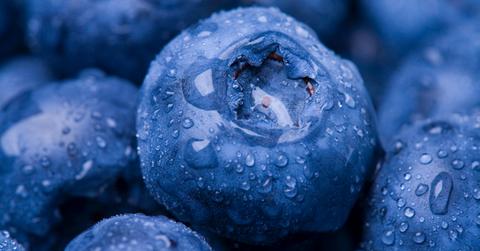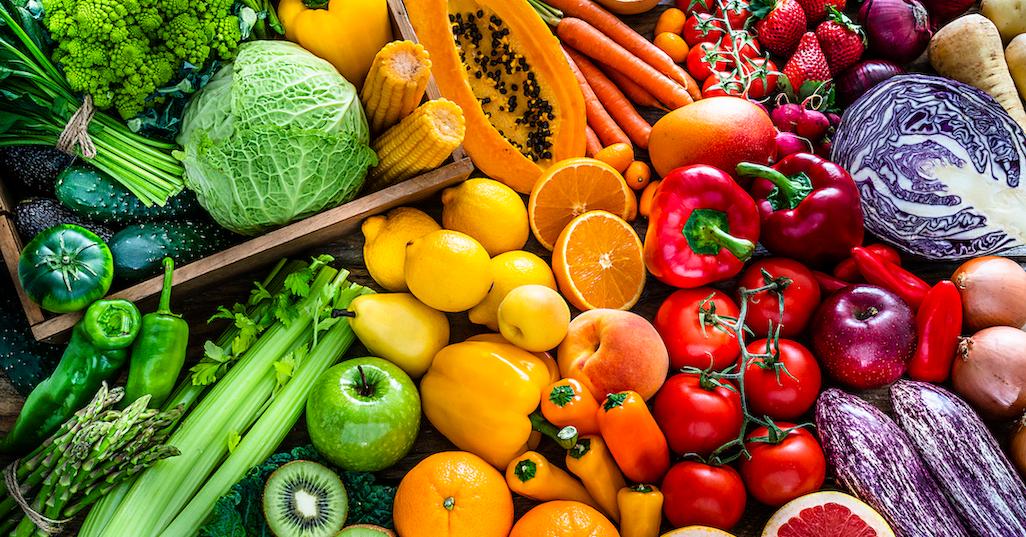2023’s Dirty Dozen and Clean 15 Lists Are Here, With Unwelcome News for Blueberries (Exclusive)
Published March 15 2023, 12:01 a.m. ET

Shopping for fresh produce can be overwhelming — not only is the produce aisle filled with shoppers sniffing, squeezing, and inspecting fruits and vegetables, but often, you have to decide between the conventional and organic versions of each item. To make that decision easier, the Environmental Working Group (EWG) publishes a new Shopper's Guide to Pesticides in Produce, better known as the Dirty Dozen and Clean Fifteen, every spring.
To create these lists, the EWG analyzes more than 45,000 different produce samples. The lists identify which fruits and veggies are most likely to be contaminated with pesticides (the Dirty Dozen) and which are least likely to be contaminated with pesticides (the Clean Fifteen). From there, you can make a more educated decision about which produce is worth buying organic, which typically has a higher price tag.
READ NEXT: This Teen Is Suing Her Home State in a Historic Climate Change Case
Ahead of the unveiling of the 2023 Dirty Dozen and Clean Fifteen lists, Green Matters caught up with Alexis Temkin, Ph.D., a toxicologist for the EWG, who gave us the inside scoop on the changes to this year’s guide — which contains some disappointing news for lovers of blueberries and green beans.
Keep reading for the full Dirty Dozen and Clean Fifteen lists for this year, as well as Temkin’s insights.
The 2023 Dirty Dozen is produce with high pesticide residues, which the EWG suggests buying organic.

The Dirty Dozen is a list of 12 fruits and vegetables in the U.S. that generally have the highest pesticide levels. These tests are conducted after the items have been washed thoroughly, as a consumer would wash them. The EWG advises U.S. consumers to buy organic versions of anything on the Dirty Dozen when they can, since too much pesticide exposure has been connected to cancers, hormone disruption, skin and eye irritation, nervous system issues, and other health issues, according to the EPA.
The 2023 Dirty Dozen remains relatively similar to the 2022 list, with two major changes: Blueberries and green beans joined the list, clinching the No. 11 and No. 12 spots, respectively. (The list goes from highest to lowest pesticide concentration.) These additions knocked celery and tomatoes off of the list.
As Temkin tells Green Matters, blueberries and green beans were part of a group of produce items tested in the most recent round of USDA testing.
“When we updated the data for blueberries and green beans, it indicated that there was a higher prevalence of pesticides on these crops than the previous data that we were using,” Temkin explains. “Last time blueberries were tested was 2014, and 2016 for green beans. And this year, we saw that about 90 percent of the samples had detectable pesticide residues.”
Specifically, for blueberries, about 80 percent of samples tested contained two or more pesticides; and on green beans, the EWG detected 84 different pesticides.
Strawberries remain the “dirtiest” item, still holding the No. 1 spot. Many of the other items on the list shifted around in order (the list is classified from most pesticide residue to least).
Here is the full 2023 Dirty Dozen:
- Strawberries
- Spinach
- Kale, collard, and mustard greens
- Peaches
- Pears
- Nectarines
- Apples
- Grapes
- Bell and hot peppers
- Cherries
- Blueberries
- Green beans.
The 2023 Clean Fifteen adds just one new item this year: Carrots.

The Clean Fifteen is a list of 15 fruits and veggies that contain the lowest amount of pesticide residue in the U.S., according to the EWG’s latest analysis. Because these 15 things tend to have less pesticides on them, the EWG believes they are the safest produce items to buy conventionally, which is typically less expensive than organic produce.
The 2023 Clean Fifteen is very similar to the 2022 list — the first 11 items on the list remained in their same spots, and the last few items shifted around a bit. The major change is that carrots joined the list in the No. 15 spot, bumping out cantaloupe.
Here is the 2023 Clean Fifteen:
- Avocados
- Sweet corn
- Pineapple
- Onions
- Papaya
- Sweet peas (frozen)
- Asparagus
- Honeydew melon
- Kiwi
- Cabbage
- Mushrooms
- Mangoes
- Sweet potatoes
- Watermelon
- Carrots

The EWG also found that 75 percent of non-organic produce is contaminated with pesticides.
“75 percent of those non-organic fruits and vegetables had pesticide contamination, and that largely reflects the practices of conventional agriculture,” Temkin notes. It's often a lot higher for the fruits and vegetables on Dirty Dozen, … It's a lot closer to 90 percent for blueberries and green beans; for strawberries, about 99 percent of samples have pesticide residues.”
“Those on the Clean Fifteen are often much lower,” she continues, noting that about 65 percent of items on the 2023 Clean Fifteen actually had no detectable pesticide residues.
That said, don’t drive yourself up a wall if you aren’t able to purchase organic versions of the items on the Dirty Dozen list, since eating nutritious conventional produce is far better than not eating produce at all.
“The major point is definitely keep eating fruits and vegetables — and probably eat more fruits and vegetables,” Temkin says. “It's really important to have fruits and vegetables in your diet regardless of if they're conventional or organic.”
Temkin adds that a varied diet with all different fruits and vegetables is important. “Maybe you always eat strawberries; switch it up for other berries,” she suggests.
Basically, no matter what fruits and veggies you’re eating, they have endless nutritional benefits, even if they are conventional and on the Dirty Dozen list. But for times when you can afford to shop organic, use that extra cash for organic versions of Dirty Dozen produce items.